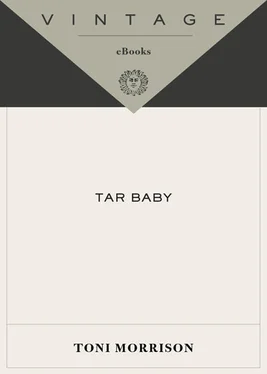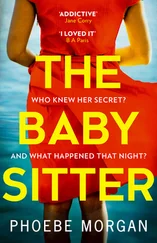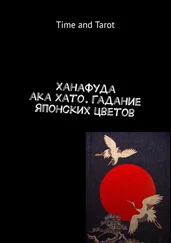Toni Morrison - Tar Baby
Здесь есть возможность читать онлайн «Toni Morrison - Tar Baby» весь текст электронной книги совершенно бесплатно (целиком полную версию без сокращений). В некоторых случаях можно слушать аудио, скачать через торрент в формате fb2 и присутствует краткое содержание. Жанр: Старинная литература, на русском языке. Описание произведения, (предисловие) а так же отзывы посетителей доступны на портале библиотеки ЛибКат.
- Название:Tar Baby
- Автор:
- Жанр:
- Год:неизвестен
- ISBN:нет данных
- Рейтинг книги:3 / 5. Голосов: 1
-
Избранное:Добавить в избранное
- Отзывы:
-
Ваша оценка:
- 60
- 1
- 2
- 3
- 4
- 5
Tar Baby: краткое содержание, описание и аннотация
Предлагаем к чтению аннотацию, описание, краткое содержание или предисловие (зависит от того, что написал сам автор книги «Tar Baby»). Если вы не нашли необходимую информацию о книге — напишите в комментариях, мы постараемся отыскать её.
Tar Baby — читать онлайн бесплатно полную книгу (весь текст) целиком
Ниже представлен текст книги, разбитый по страницам. Система сохранения места последней прочитанной страницы, позволяет с удобством читать онлайн бесплатно книгу «Tar Baby», без необходимости каждый раз заново искать на чём Вы остановились. Поставьте закладку, и сможете в любой момент перейти на страницу, на которой закончили чтение.
Интервал:
Закладка:
He spent some part of every night with her and grew to know the house well, for he sneaked out just before dawn when the kitchen came alive. And he had to admit now, standing in the sunlight, that he had liked living in the house that way. It became his, sort of. A nighttime possession complete with a beautiful sleeping woman. Little by little he learned the people. And little by little he forgot that he had not followed the women. He thought he had. Only now did he remember that it was the avocado, the thirst, the piano. And now here he was with the immediate plans of a newborn baby.
He didn’t like to think too far in advance anyway, but he supposed he’d have to think up a story to tell them about who he was and what his name was. Oh, he had been alone so long, hiding and running so long. In eight years he’d had seven documented identities and before that a few undocumented ones, so he barely remembered his real original name himself. Actually the name most truly his wasn’t on any of the Social Security cards, union dues cards, discharge papers, and everybody who knew it or remembered it in connection with him could very well be dead. Son. It was the name that called forth the true him. The him that he never lied to, the one he tucked in at night and the one he did not want to die. The other selves were like the words he spoke—fabrications of the moment, misinformation required to protect Son from harm and to secure that one reality at least.
THROUGH the window on the ground below he saw the back of a man stooping at some cutting or digging chore. It was the black man he had seen off and on around the grounds. He stared at his back. Yardman, she called him. That was Yardman’s back. He knew backs, studied them because backs told it all. Not eyes, not hands, not mouths either, but backs because they were simply there, all open, unprotected and unmanipulable as Yardman’s was, stretched like a smokehouse cot where hobos could spend the night. A back where the pain of every canker, every pinched neck nerve, every toothache, every missed train home, empty mailbox, closed bus depot, do-not-disturb and this-seat-taken sign since God made water came to rest. He watched the angle of the old man’s spine and for no reason that he could think of tears stung his eyes. It astonished him, those unshed tears, for he knew well the area into which his heart was careening—an area as familiar as the knuckle of his thumb. Not the street of yellow houses with white doors, but the wide lawn places where little boys in Easter white shorts played tennis under their very own sun. A sun whose sole purpose was to light their way, golden their hair and reflect the perfection of their Easter white shorts. He had fingered that image hundreds of times before and it had never produced tears. But now watching Yardman—he was kneeling, chopping at the trunk of a small tree—while he himself was so spanking clean, clean from the roots of his hair to the crevices between his toes, having watched his personal dirt swirl down a drain, while he himself stood wrapped waist-to-thigh in an Easter white towel—now he was as near to crying as he’d been since he’d fled from home. You would have thought something was leaving him and all he could see was its back.
Slowly Yardman stood. He turned around toward the house and for less than a pulse beat glanced at the trees that grew at the edge of the courtyard. Then he lifted his cap, scratched his head with his ring and little finger, and pulled the cap back on. “Thanks,” whispered Son. “One more second of your smokehouse cot might have brought me there at last.”
WHILE MARGARET had been lying in her sculptured bedroom, fighting hunger, anger and fear, Valerian was in his greenhouse staring out of the one glass window imagining what was not so: that the woman in the washhouse was bending over a scrub board rubbing pillow slips with a bar of orange Octagon soap. He knew perfectly well that a washer and dryer were installed there (he couldn’t hear the hum, for the music and the drone of the air conditioner in the greenhouse obliterated it, but he could see the steam puffing from the exhaust pipe) but the scrub board, the pillow slips and the orange soap were major parts of what he wished to see: the back yard of the house of his childhood in Philadelphia; the hydrangea, fat and brown in the September heat. His father, knocked down by a horse-drawn milk truck, lay in bed, the house already funereal. Valerian went out back to the shed where a washerwoman did the family’s laundry. She was thin, toothless and looked like a bird. Valerian sometimes visited her, or rather hung around her shed, asking questions and chattering. She was like a pet who would listen agreeably to him and not judge or give orders. The first time he came, she had said, by way of polite conversation—the pointless conversation of an adult without stature to a child who had some—“What your daddy doin today?” And he had answered that his daddy was away on a sales trip to Atlantic City. From then on she greeted him that way. He would wander to the shed door and she would ask, “What your daddy doin today?” and he would tell her, as a preliminary to the conversation, “He’s at the factory today” or “He’s in New York today.” It was a delightful opener to him because she and his father had never laid eyes on each other. A sort of grown-up conversation followed the question that they both took seriously. On one of the Wednesdays she came to work, his father died without regaining consciousness. Valerian was fussed over by his mother and relatives and then left alone while they busied themselves with death arrangements. He wandered out to the washhouse that afternoon and when the woman said, “Hi. What your daddy doin today?” Valerian answered, “He’s dead today,” as though tomorrow he would be something else. The woman looked up at him and paused for an awkward silence in which he suddenly understood the awfulness of what had happened and that his father would also be dead the next day and the day after that as well. In that instant, while the birdlike colored woman looked at him, he knew limitlessness. The infinity of days in which the answer to her question would be the same. “He’s dead today.” And each day it would be so. It was too big, too deep, a bottomless bucket of time into which his little boy legs were sinking and his little boy hands were floundering.
Finally she blinked and pointed to a shelf behind him. “Hand me that soap,” she said. And he did. “Now unwrap it and stand right over here. Up close. Closer.” He did that too and she made him rub soap on the wet pillowcase that clung to the washboard. He scrubbed his heart out, crying all the while, pillowcase after pillowcase, rubbed and rubbed until his knuckles were cherry red and his arms limp with fatigue. And when he could not do another, she patted him on the head and said she would hire him any day. Later George, the butler they had before Sydney, found out about it (he had wondered about those cherry-red knuckles) and told him to stay out of there because that woman drank like a fish and he mustn’t let her use him to do her work. Valerian told him to mind his own “beeswax,” but they let the woman go and Valerian never again had to say, “He’s dead today,” but he said it anyway to himself until his little boy legs were strong enough to tread the black water in the bucket that had no bottom. So, inconvenient as it was, he had insisted on a separate washhouse when he built L’Arbe de la Croix, less for an island touch than for the remembrance of having once done something difficult and important while the world was zooming away from him. Now another washerwoman came. It wasn’t quite the same. No Octagon soap, no wavy gleaming washboard, but he liked looking at it through his greenhouse window knowing there was a woman in there doing something difficult but useful in peace. A soothing thought to concentrate on while his own house was prickly with tension and unanswered questions.
Читать дальшеИнтервал:
Закладка:
Похожие книги на «Tar Baby»
Представляем Вашему вниманию похожие книги на «Tar Baby» списком для выбора. Мы отобрали схожую по названию и смыслу литературу в надежде предоставить читателям больше вариантов отыскать новые, интересные, ещё непрочитанные произведения.
Обсуждение, отзывы о книге «Tar Baby» и просто собственные мнения читателей. Оставьте ваши комментарии, напишите, что Вы думаете о произведении, его смысле или главных героях. Укажите что конкретно понравилось, а что нет, и почему Вы так считаете.











